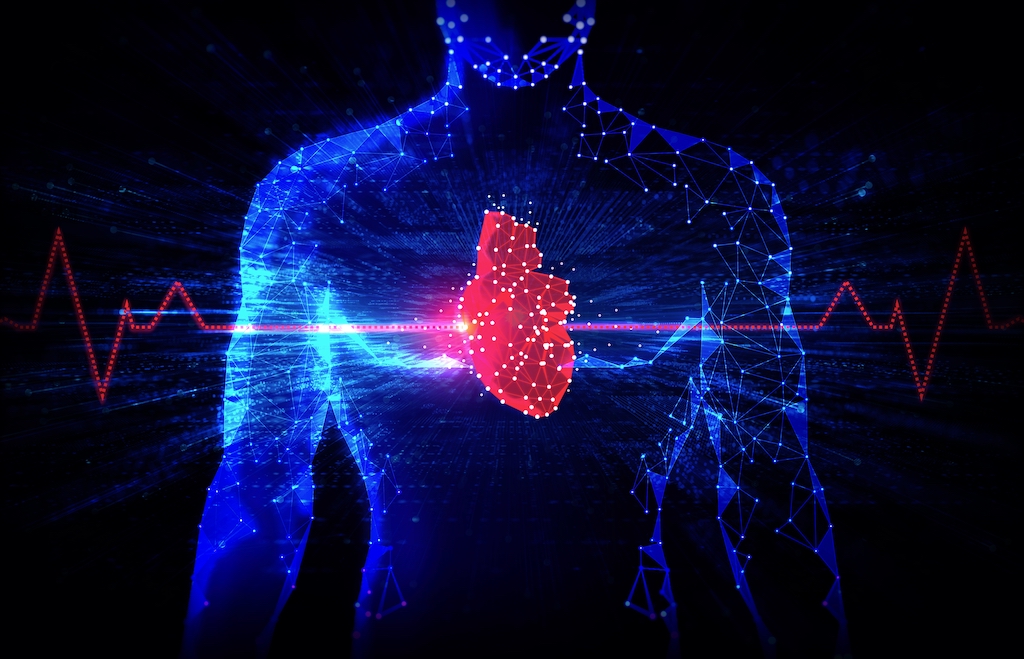 Photo Credit: Luis Venne Photography
Photo Credit: Luis Venne Photography
Experiencing a fluttering in your chest? A racing heartbeat? Or even a slow heartbeat? These are common signs and symptoms of arrhythmias. If you are experiencing any of the above, it is advised to see an electrophysiologist. Haute MD experts at Naples Heart Rhythm Specialists are geared toward all things heart-related (cardiology). With that in mind, Haute MD sat down with Dr. Andrew Yin, M.D., electrophysiologist, to discuss how he treats, diagnoses, and advises his patients if they are experiencing an irregular heartbeat. Here’s what he shared:
How do you diagnose and treat irregular heart rhythms?
For diagnosis, we use multiple cardiac monitoring modalities, including EKGs, wearable heart monitors, smartphone apps, and sometimes, even people’s own smartwatches can help diagnose heart arrhythmias. Some abnormal heart rhythms are easily treated with medications. However, some require more advanced procedures such as ablations, pacemakers, or defibrillators.
Occasionally, with certain rhythm abnormalities, treatment only requires reassurance from the physician to the patient, as certain arrhythmias aren’t dangerous. Either way, proper diagnosis and treatment of irregular heart rhythms can be achieved with the help of a board-certified cardiologist and electrophysiologist.
How often are you supposed to see an electrophysiologist?
Depending on your diagnosis, one might need to see an electrophysiologist as little as once per year, or as frequently as once per month until the condition is stabilized.
 Photo Credit: ArtemisDiana/Shutterstock.com
Photo Credit: ArtemisDiana/Shutterstock.com
What are the symptoms of an irregular heart rhythm?
The most common symptoms of irregular heart rhythm are palpitations, chest discomfort or pain, shortness of breath, fatigue, dizziness, skipped beats, and the sensation that you may pass out or actually passing out. In some cases, however, the irregular rhythm is completely asymptomatic.
What does it mean when a doctor tells you that you are experiencing irregular heart rhythm?
All humans are born with a natural pacemaker and an electrical conduction system within their hearts. Irregular or abnormal heart rhythms can occur when there is an interruption of that system, and your heart is beating in a way that is not regular or typical for the heart.
What lifestyle changes can you make to prevent irregular heart rhythms?
Oftentimes, irregular heart rhythms are receptive to lifestyle changes. Most frequently, cardiologists will recommend that patients minimize alcohol intake and only consume caffeinated products in moderation. Maintaining adequate hydration, especially when exercising, is also crucial to avoiding abnormal heart rhythms. Finally, if you snore, or have been told you snore, it’s important to discuss this with your physician and get evaluated and treated for sleep apnea, as this diagnosis can severely affect your heart.
What are the methods of treating irregular heart rhythms?
Treatment of heart rhythm disturbances is very specific to the type of arrhythmia and can range from conservative monitoring and reassurance to surgical intervention. The best way to get evaluated and treated for an irregular heart rhythm is to see an electrophysiologist.
For more information, visit Dr. Brian A. Levine's social media:

























